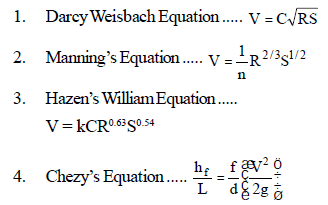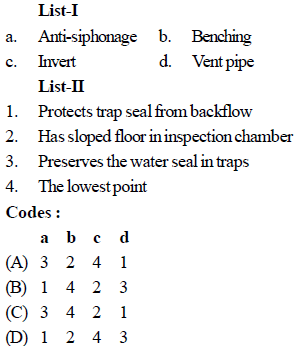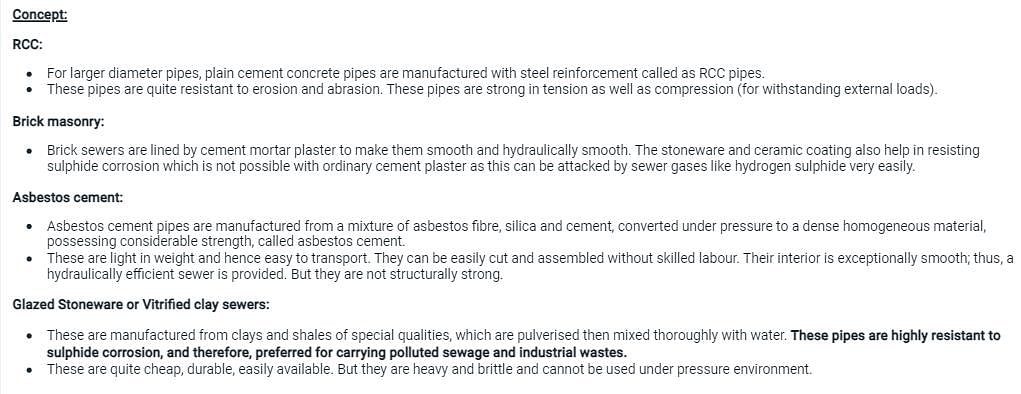Test: Environment Engineering Practices- 2 - Civil Engineering (CE) MCQ
25 Questions MCQ Test Civil Engineering SSC JE (Technical) - Test: Environment Engineering Practices- 2
Consider the following pairs :

Which of these pairs are correct ?
Match List-I with List-II and select the correct answer using the codes given below the lists :

| 1 Crore+ students have signed up on EduRev. Have you? Download the App |
Which is the best sewer material to resist hydrogen sulphide corrosion ?
The standard turbidity produced by one mg of silicon dioxide (silica) in one litre of distilled water, is called
One True Colour Unit (TCU) is the colour produced by
The threshold odour number (TON) for a water sample of 40 ml, dilute to standard 200 ml mixture, in which odour is just barely detectable to the sense of smell, is
Water is considered ‘hard’, if its hardness is of the order of
Higher quantities of copper, more than 2.5 mg/l or so, may cause diseases pertaining to
The maximum allowable concentration of iron in water is
The commonly used indicator for measuring iron concentration in water is
The maximum safe permissible limit of chlorides in domestic water supplies is
Breweries and distilleries preferably require
Electrical conductivity (EC) of water and total dissolved solids (TDS) are interrelated. The value of EC will
In which one of the following tests is the organic matter in the waste mater used as food by micro-organisms?
Which one of the following organisms is responsible for enteric fever ?
Presence of nitrogen in a waste water sample is due to the decomposition of
Which of the following cations impart(s) pseudohardness to water ?
Match List-I (Equipment) with List-II (Parameter) and select the correct answer using the codes given below the lits :
What is the most common cause of acidity in water ?
Match List-I (Parameter) with List-II (Impact) and select the correct answer using the codes given below the lists:
List-I (Parameter) a. Excess sulphates b. Lack of iodide c. Excess hardness d. Excess dissolved minerals
List-II (Impact)
- Greater soap consumption
- Laxative
- Goiter
- Corrosion of pipes
Which one of the following tests of water/ wastewater employs Erichrome Black T as an indicator ?
The maximum permissible limit for fluoride in drinking water is
Phenolphthalein indicator is used to determine the alkalinity above pH
|
2 videos|122 docs|55 tests
|
|
2 videos|122 docs|55 tests
|


















